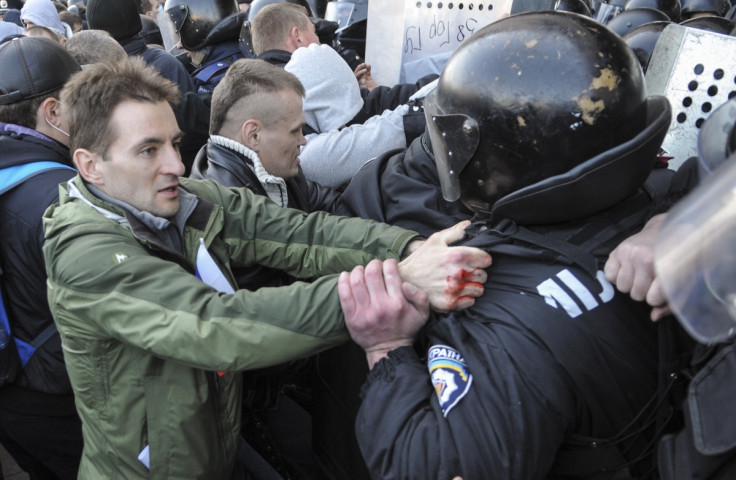IMF Slashes Russia's Growth Prospects as Ukraine Crisis Bites

The International Monetary Fund (IMF) has cut the rate it expects Russia to grow this year, as political tensions between Moscow and Ukraine and its allies escalate.
The IMF predicts that the Russian economy will only grow by 1.3% this year. That's around a third less than the 2% prediction that it made before the Ukraine crisis. Russia's annexation of Crimea led the United States and the European Union to impose economic sanctions on Moscow, amid widespread unease over the possibility of a military conflict.
"The balance of risks for Russia and her neighbours remains to the downside, considering rising political uncertainties following the takeover of Crimea by Russia, tightening financial conditions, and volatile capital flows," the fund said in a report.
"Intensification of sanctions and countersanctions could affect trade flows and financial assets," it said.
The IMF outlook follows hot on the heels of an even more negative report published by the World Bank, which said that the Russian economy could shrink by 1.8% in 2014 if the Ukraine crisis escalates. It predicted that Russia would only grow by 1.1% in a best-case scenario.
Both the IMF and World Bank presented a more favourable outlook than that of the Russian government, which predicted that growth could plunge "significantly" below 1%.
American and European sanctions on Ukraine have already sparked capital flight from Russia, estimated to be in the region of $70bn in the first quarter. The World Bank has predicted that number could more than double to $150bn this year if the crisis is not resolved.
In the past week, Russian energy giant Gazprom has entered a gas war with the Ukrainian government over prices and outstanding payments.
Gazprom said it wanted Kiev to pay off $2.2bn in unpaid bills by midnight on Monday, although the deadline passed without action from either side.
Russia has previously cut off gas supplies to Ukraine in 2005 and 2008 and any potential disruption over the current stand-off would undoubtedly damage growth prospects in Ukraine, Russia and Europe. The EU relies on Russia for around a third of its gas needs, 40% of which come via Ukraine.
The IMF also noted that the Russian slump would hurt former Soviet states too.
"A slowdown in Russia owing to unsettled conditions would affect the Caucasus and Central Asia through both real sector and financial channels, particularly if energy supply is disrupted and oil and gas prices rise," the fund said.
© Copyright IBTimes 2025. All rights reserved.






















